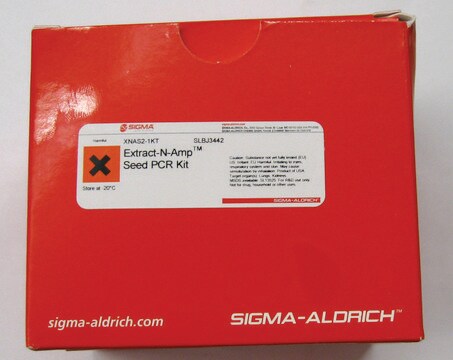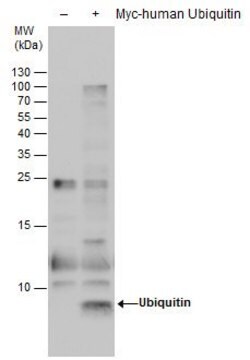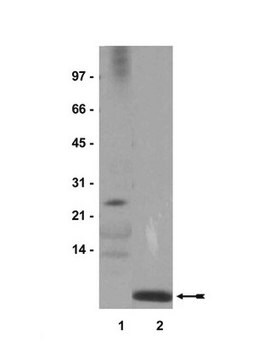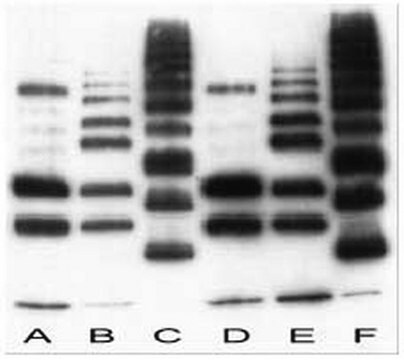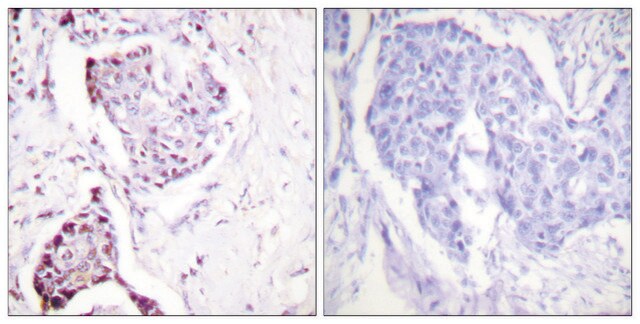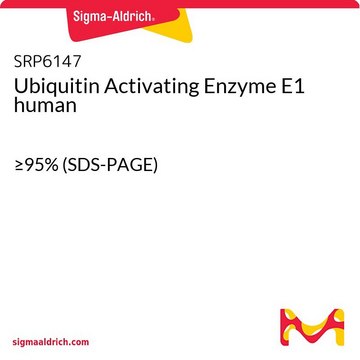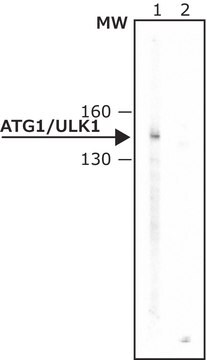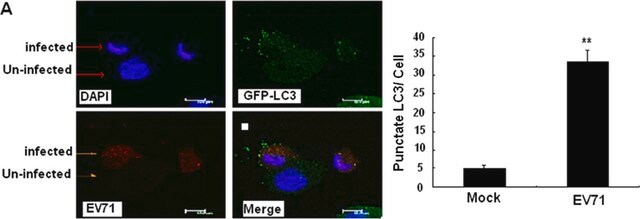U0508
Monoclonal Anti-Ubiquitin antibody produced in mouse
clone 6C1, ascites fluid
About This Item
Recommended Products
biological source
mouse
Quality Level
conjugate
unconjugated
antibody form
ascites fluid
antibody product type
primary antibodies
clone
6C1, monoclonal
contains
15 mM sodium azide
species reactivity
human, rat, mouse, bovine
technique(s)
indirect ELISA: suitable
microarray: suitable
western blot: 1:1,000 using whole cell lysate of human promyelocitic HL60 cells
isotype
IgG2a
UniProt accession no.
shipped in
dry ice
storage temp.
−20°C
target post-translational modification
unmodified
Gene Information
human ... UBB(7314) , UBC(7316)
mouse ... Ubb(22187) , Ubc(22190)
rat ... Ubb(192255) , Ubc(50522)
General description
Immunogen
Application
Western Blotting (1 paper)
Disclaimer
Not finding the right product?
Try our Product Selector Tool.
recommended
Storage Class Code
10 - Combustible liquids
Flash Point(F)
Not applicable
Flash Point(C)
Not applicable
Choose from one of the most recent versions:
Already Own This Product?
Find documentation for the products that you have recently purchased in the Document Library.
Customers Also Viewed
Our team of scientists has experience in all areas of research including Life Science, Material Science, Chemical Synthesis, Chromatography, Analytical and many others.
Contact Technical Service


